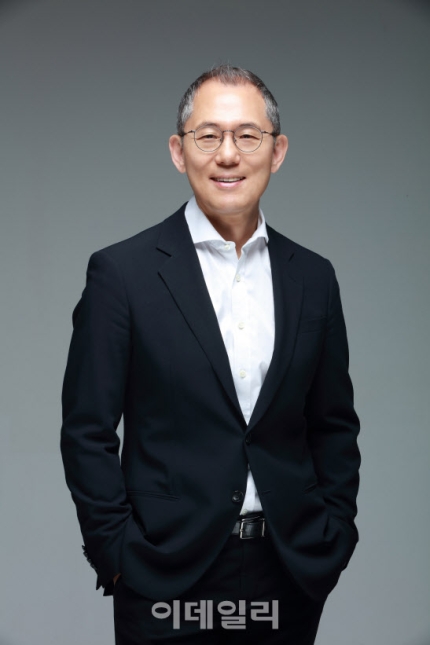Hanmi’s Special Task Force Set to Develop Digital Therapy for COVID-19
2021.01.13
Interview with Nam Byung-ho, CEO of Herings, in charge of clinical design in Special Task Force
Special Task Force presents a concrete outline for the development of COVID-19 therapy
Development of patient-tailored customized therapy

“Just like personal training that is individually tailored, we will develop a therapeutic agent that is optimized for individual COVID-19 patients.” Hanmi Science [KOSDAQ: 008930], the holdings company of Hanmi Pharm [KOSDAQ: 128940] has come up with a concrete outline for developing a digital therapy for COVID-19 through the Special Task Force (TF) formed to quell the pandemic.
Nam Byung-ho, CEO of Herings, a precision medicine-based digital platform company, has been placed in charge of developing a clinical design for the project. During an interview with E-Daily on January 12, Nam stated, “We will undertake a clinical trial to develop a new form of therapeutic agent for COVID-19 by introducing digital therapeutics.”
Hanmi Science recently launched the Special TF to help combat the global health crisis, with CEO Lim Chong-Yoon spearheading the effort. Participating in the TF are Coree Therapeutics, an affiliate of Hanmi, as well as bio startups, Herings, Theragen Bio, and Synteka Bio [KOSDAQ: 226330] and schools of medicine and medical sciences at Seoul National University, Pohang University of Science and Technology (POSTECH), Handong Global University, and Keimyung University.
In order to manufacture personalized COVID-19 therapeutic agents incorporating digital therapeutics, the Special TF has decided to avoid the traditional route of conducting a clinical trial on a pharmaceutical drug. This was based on the judgment that there was a need to further subdivide the subject groups instead of grouping subjects into groups with “minor symptoms,” “moderate symptoms,” “severe symptoms,” and so on.
Nam explained, “A clinical trial takes a standardized approach to all patients, so it is impossible to establish individually tailored evaluation indicators that precisely reflects each COVID-19 patients characteristics [...] It is difficult to raise the chance of success of the clinical trial, and even if the candidate drug is approved, it will not be effective for all patients.”
In other words, even if the clinical trial is carried out with patients displaying minor or severe symptoms, the subjects may be further divided into a group at risk of developing severe symptoms and a group that is not at such risk by using a statistical algorithm developed based on the strength of the immune system, inflammation levels, and so on. The subjects may also be divided into a group that is likely to respond to a certain drug and a group that is not.
Nam then noted that “it is necessary to develop a multiple drug therapy (MDT) in which a candidate drug and digital therapeutic agent are administered in combination with a therapeutic agent for inflammation, immunologic adjuvant, etc.” and that there are “plans to continually administer other predesignated candidate drugs if the [initially attempted] drugs do not work.”
In a conventional clinical trial, if the candidate drug whose efficacy is under examination is deemed ineffective, the study is terminated without taking any additional measures. However, the Special TF plans to administer another predesignated candidate drug to the same subject and examine the therapeutic effects in order to discover the optimal treatment method.
The Special TF plans to conduct follow-up observations in order to check for the response to the digital therapeutic agent, adverse events, post-treatment sequelae, and so on. Nam stated, “The digital therapeutic agent isn’t meant to substitute any existing drugs for COVID-19, such as remdesivir, but it is supposed to complement them. [...] It will be used in combination with a drug for COVID-19 as a way to boost the effectiveness of the treatment.”
“If this new type of clinical trial works, then it will be possible to develop a therapeutic agent for COVID-19 that is effective even for patients who could not be treated using the drugs developed under traditional clinical designs,” said Nam, who also emphasized that “there are no such thing as ‘bad drugs’ but just bad clinical designs.”
Nam is Korea’s top expert on clinical design and consulting who has studied at Seoul National University and obtained a Ph.D. in Philosophy in Biostatistics at Boston University. He is known for having masterminded the clinical designs for major clinical study including the world’s first clinical trial that played a decisive role in establishing laparoscopic surgery as the standard treatment method for colorectal cancer.
There are many challenges ahead for the Special TF. First of all, no digital therapeutic agents have ever been approved in Korea. It is also uncertain whether their clinical study plan will be approved by the authorities. Nam said, “This type of clinical trial has never been conducted before. [...] There is a need to meet with the Ministry of Food and Drug Safety to consult on and convince them of the need to develop a therapeutic agent based on a new clinical design.” It has been reported that a meeting will be held between the Special TF and the Ministry of Food and Drug Safety around this month.
Source: E-Daily

